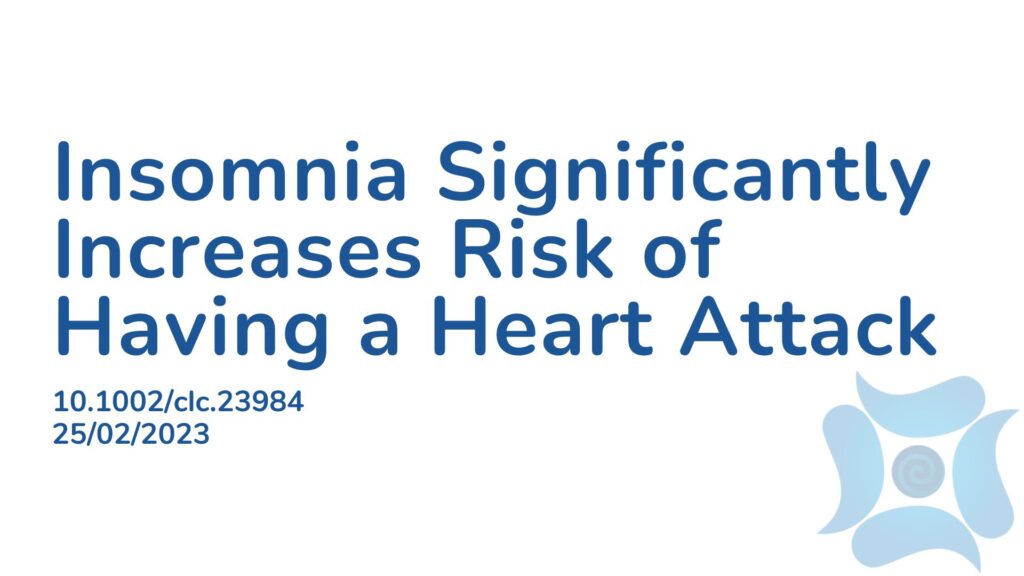Summary:
Research has consistently shown that insomnia is associated with risk of cardiovascular disease (CVD), including heart attacks. This study aimed to further assess the role of insomnia in risk of heart attacks and found that people who have insomnia were 69% more likely to have a heart attack. The participants of this study were followed for nine years. In addition, the results also showed that people with both diabetes and insomnia had an even larger chance of having a heart attack.
Abstract:
Background: Insomnia has been closely associated with cardiovascular disease (CVD) including myocardial infarction (MI). Our study aims to assess the eligibility of insomnia as a potential risk factor for MI. Methods: PubMed, Scopus, and Web of Science were searched using terms; such as “Insomnia” and “MI.” Only observational controlled studies with data on the incidence of MI among insomniacs were included. Revman software version 5.4 was used for the analysis. Results: Our pooled analysis showed a significant association between insomnia and the incidence of MI compared with noninsomniacs (relative risk [RR] = 1.69, 95% confidence interval [CI] = 1.41–2.02, p < .00001). Per sleep duration, we detected the highest association between ≤5 h of sleep, and MI incidence compared to 7−8 h of sleep (RR = 1.56, 95% CI = 1.41–1.73). Disorders of initiating and maintaining sleep were associated with increased MI incidence (RR = 1.13, 95% CI = 1.04–1.23, p = .003). However, subgroup analysis of nonrestorative sleep and daytime dysfunction showed an insignificant association with MI among both groups (RR = 1.06, 95% CI = 0.91–1.23, p = .46). Analysis of age, follow-up duration, sex, and comorbidities showed a significant association in insomniacs. Conclusion: Insomnia and ≤5 h of sleep are highly associated with increased incidence of MI; an association comparable to that of other MI risk factors and as such, it should be considered as a risk factor for MI and to be incorporated into MI prevention guidelines.
Article Publication Date: 25/02/2023
DOI: 10.1002/clc.23984




